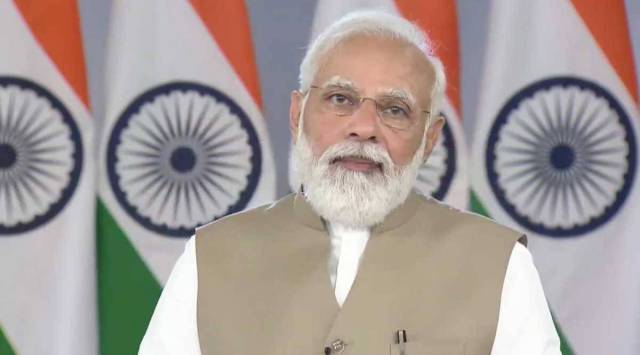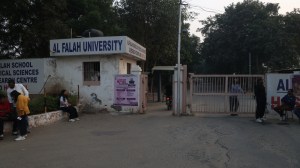2002 Gujarat riots: BBC documentary on Modi biased…blatant colonial mindset, says MEA
In UK, PM Rishi Sunak disagrees with MP who alleges complicity in violence.
 PM Narendra Modi
PM Narendra Modi A day after the BBC aired the first part of a two-part documentary, “India: The Modi Question”, focusing on Prime Minister Narendra Modi’s and his then state government’s response to the 2002 Gujarat riots, the government Thursday called it a “propaganda piece”, which lacked “objectivity” and reflected a “colonial mindset”.
In London, British Prime Minister Rishi Sunak said he does not agree with the “characterisation” made by Imran Hussain, the Pakistan-origin British MP who raised the question about Modi’s role and alleged complicity calling the riots “ethnic cleansing”.
“The UK government’s position on this has been clear and longstanding and has not changed. Of course, we don’t tolerate persecution anywhere but I’m not sure I agree at all with the characterisation,” Sunak said.
In New Delhi, the Ministry of External Affairs official spokesperson Arindam Bagchi, in response to questions at the weekly briefing, said: “Do note that this (the documentary) has not been screened in India. So, I am only going to comment in the context of what I have heard about it and what my colleagues have seen. Let me just make it very clear that we think this is a propaganda piece designed to push a particular discredited narrative.”
“The bias, the lack of objectivity, and frankly a continuing colonial mindset, is blatantly visible. If anything, this film or documentary is a reflection on the agency and individuals that are peddling this narrative again. It makes us wonder about the purpose of this exercise and the agenda behind it and frankly we do not wish to dignify such efforts,” Bagchi said.
The documentary, which flagged the violence, including the killing of three UK nationals and the alleged murder of former state minister Haren Pandya, also interviewed former UK Foreign Secretary Jack Straw, who served in office between 2001 and 2006.
Straw says in the documentary that at that time the UK government had instituted an inquiry and a team visited Gujarat to investigate the riots. Straw says the team produced “a very thorough report” that, according to the documentary, blamed the then Modi government for the violence that targeted minorities.
Responding to the British inquiry, former Foreign Secretary Kanwal Sibal said, “I was FS during that period. I am aware of the mischief by UK mission. Sent their diplomat to Gujarat and circulated highly slanted ‘report’ to EU envoys in Delhi. I was informed by a EU envoy which prompted me to issue warning to missions in Delhi to not interfere in our internal affairs.”
In June 2022, the Supreme Court had agreed with the findings of the Special Investigation Team appointed by it, which had said that there was no “larger conspiracy” behind the 2002 Gujarat riots, and had dismissed the appeal filed by Zakia Jafri challenging the SIT’s clean chit to Modi and others in cases related to the riots.
A bench of Justices A M Khanwilkar, Dinesh Maheshwari and C T Ravikumar had said: “The SIT has not found any conspiracy, linking separate and disparate acts of arson and looting or outrageous claims made in sting operations or individual utterances/publications of purported hate speech, to any singular larger conspiracy or planned event.”







